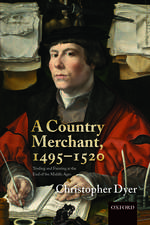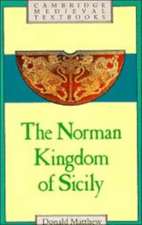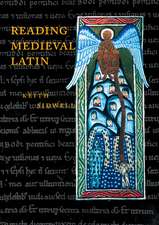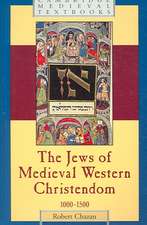Victory through Coalition: Britain and France during the First World War: Cambridge Military Histories
Autor Elizabeth Greenhalghen Limba Engleză Paperback – 10 ian 2009
| Toate formatele și edițiile | Preț | Express |
|---|---|---|
| Paperback (1) | 304.13 lei 6-8 săpt. | |
| Cambridge University Press – 10 ian 2009 | 304.13 lei 6-8 săpt. | |
| Hardback (1) | 700.20 lei 6-8 săpt. | |
| Cambridge University Press – 7 dec 2005 | 700.20 lei 6-8 săpt. |
Din seria Cambridge Military Histories
-
 Preț: 274.69 lei
Preț: 274.69 lei -
 Preț: 231.09 lei
Preț: 231.09 lei -
 Preț: 230.10 lei
Preț: 230.10 lei -
 Preț: 274.69 lei
Preț: 274.69 lei -
 Preț: 200.28 lei
Preț: 200.28 lei -
 Preț: 174.33 lei
Preț: 174.33 lei -
 Preț: 155.66 lei
Preț: 155.66 lei -
 Preț: 185.60 lei
Preț: 185.60 lei -
 Preț: 280.46 lei
Preț: 280.46 lei -
 Preț: 172.41 lei
Preț: 172.41 lei -
 Preț: 234.23 lei
Preț: 234.23 lei -
 Preț: 218.33 lei
Preț: 218.33 lei -
 Preț: 182.37 lei
Preț: 182.37 lei -
 Preț: 235.32 lei
Preț: 235.32 lei -
 Preț: 200.77 lei
Preț: 200.77 lei -
 Preț: 290.73 lei
Preț: 290.73 lei -
 Preț: 287.31 lei
Preț: 287.31 lei -
 Preț: 199.90 lei
Preț: 199.90 lei -
 Preț: 276.61 lei
Preț: 276.61 lei -
 Preț: 286.69 lei
Preț: 286.69 lei - 11%
 Preț: 699.36 lei
Preț: 699.36 lei -
 Preț: 425.13 lei
Preț: 425.13 lei - 14%
 Preț: 721.78 lei
Preț: 721.78 lei -
 Preț: 432.26 lei
Preț: 432.26 lei -
 Preț: 270.07 lei
Preț: 270.07 lei -
 Preț: 271.39 lei
Preț: 271.39 lei - 11%
 Preț: 697.14 lei
Preț: 697.14 lei - 11%
 Preț: 698.68 lei
Preț: 698.68 lei -
 Preț: 387.22 lei
Preț: 387.22 lei -
 Preț: 287.48 lei
Preț: 287.48 lei -
 Preț: 237.16 lei
Preț: 237.16 lei -
 Preț: 321.74 lei
Preț: 321.74 lei -
 Preț: 323.27 lei
Preț: 323.27 lei -
 Preț: 421.06 lei
Preț: 421.06 lei - 14%
 Preț: 758.35 lei
Preț: 758.35 lei -
 Preț: 426.91 lei
Preț: 426.91 lei
Preț: 304.13 lei
Nou
58.20€ • 63.20$ • 48.89£
Carte tipărită la comandă
Livrare economică 22 aprilie-06 mai
Specificații
ISBN-10: 0521096294
Pagini: 324
Ilustrații: 10 b/w illus. 3 maps 4 tables
Dimensiuni: 152 x 229 x 18 mm
Greutate: 0.48 kg
Ediția:1
Editura: Cambridge University Press
Colecția Cambridge University Press
Seria Cambridge Military Histories
Locul publicării:Cambridge, United Kingdom
Cuprins
Recenzii
"Elizabeth Greenhalgh's perceptive and well-researched book is the third title in the Cambridge Military History series.... Victory through Coalition presents a straight forward thesis summed up in its title....Greenhalgh has provided not just a fine exploration of the subject at hand but a useful model for thinking about how to write the history of coalition warfare elsewhere."
--Leonard V. Smith, Oberlin College, Journal of Modern History
"This work does...add to our understanding of the nature of the Allies' coalition war, showing that it was, indeed, won because of cooperation, despite the various minor and major issues that were thrown up in the course of the war." - Ross Mahoney, H-War
"...well-researched account of Franco-British coalition warfare that would be of interest to historians and general readers alike." -Werner D. Lippert, The Historian
Descriere
Germany's invasion of France in August 1914 represented a threat to the great power status of both Britain and France. The countries had no history of co-operation, yet the entente they had created in 1904 proceeded by trial and error, via recriminations, to win a war of unprecedented scale and ferocity. Elizabeth Greenhalgh examines the huge problem of finding a suitable command relationship in the field and in the two capitals.
She details the civil-military relations on each side, the political and military relations between the two powers, the maritime and industrial collaboration that were indispensable to an industrialised war effort and the Allied prosecution of war on the western front. Although it was not until 1918 that many of the war-winning expedients were adopted, Dr Greenhalgh shows that victory was ultimately achieved because of, rather than in spite of, coalition.






























